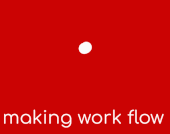Ten years ago, offices around the country had a printer stationed in every room. Each one flanked by a recycling box. Filing cabinets bulged with papers filed under client, year, product, and other retrieval classifications.
Forms would be printed, completed and faxed, or delivered by hand, to the relevant department. Print was most definitely fully ensconced at the heart of every forward-thinking business.
However, times have changed. Office staff are much more careful about what they print and businesses are open to print management solutions.
The environmental impact of print
This awareness stems in part from an increasing consciousness of the impact we are having on the planet. Businesses around the UK are striving to achieve ISO 14001 to prove their sustainability and environmental management credentials.
It isn’t simply the altruistic nature of businesses and business owners wanting to pass the planet to the next generation in as good a condition as possible. Organisations are waking up to the fact that to attract customers they need to align their interests. They need to care about what consumers care about. And achieving ISO 14001 is an effective way of demonstrating this.
ISO 14001 is awarded to businesses that put environmental management at the heart of their operations to achieve sustainable success. It’s an internationally recognised standard that purports to reduce an organisation’s environmental impact and grow their business.
One way that businesses can do this is by being more aware of what they print and how it’s printed.
PaperCut MF is one solution that we have to help organisations operate in a more environmentally friendly manner. PaperCut MF gives organisations visibility on how they are using paper, ink and electricity, enabling them to identify and mitigate waste within the business. It isn’t just the environmental aspect that is responsible for our changing attitudes to print.
The digital era has changed how we work
This office-centric approach to work did work, once upon a time. However, with email and the internet, employees can work from anywhere in the world. This poses serious access issues to a paper-based organisation; a document in an office in London isn’t easily accessible to the Sales Manager in Sao Paulo.
Over recent years businesses have been busily moving their data to the cloud. This doesn’t just have the advantage of being accessible by anyone with authorisation, anywhere, it also enables easier retrieval; by data, file name, metatags, content or data owner. Of course, there’s an environmental benefit to digital data too.
Fax machines now gather dust in the corner as email has taken over for both speedier and more secure communications.
For some business functions such as legal and finance, failure to hold specific types of data can lead to a hefty fine for non-compliance. These industries need to balance their ability to be sustainable and meet environmental objectives with the need to deliver a reliable and compliant service. For this reason, these industries are proving more reticent to change, however, as the cloud becomes increasingly secure, and more failovers are created, they too will find it easier to enhance their environmental credentials.
Despite this change in how we use print, we’ll always need printed documents. The world still revolves around printed documents. We just need to be more responsible in how we choose to use paper, ink, toner and electricity.
To discuss how we can help you to save money and improve your workflow with our cloud-based document and print management solutions, call us today on 0345 305 2601.

